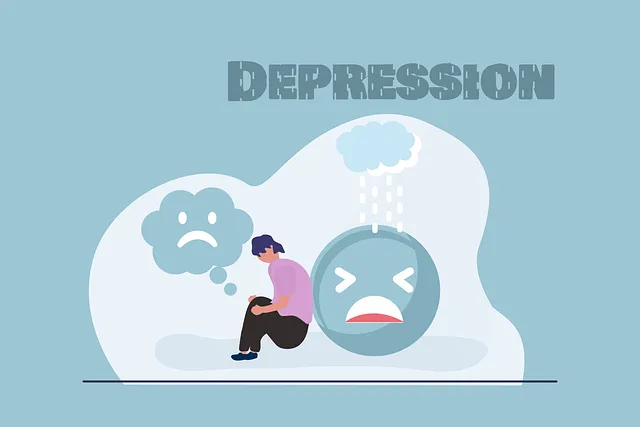The Kaiser Permanente mental health facility in Westminster prioritizes Social Skills Training as a core element of patient care, addressing barriers to interpersonal interactions. This tailored program enhances communication, empathy, and conflict resolution for individuals with anxiety, depression, or other conditions, fostering confidence and supportive relationships. Using diverse therapeutic techniques, flexible programs, and innovative methods, the facility significantly improves social skills through interactive learning, mental wellness journaling, mindfulness exercises, risk assessments, and targeted feedback. Success is measured via multifaceted approaches including self-reflection, self-awareness, and comprehensive risk assessment, promoting positive mental health outcomes aligned with broader Mental Health Policy goals.
Social skills training plays a pivotal role in managing mental health conditions, offering individuals the tools to navigate social interactions with confidence. At the Kaiser Permanente mental health facility in Westminster, such training has become an integral part of patient care. This article delves into the importance of these programs, exploring target areas like common mental health conditions and associated challenges. We discuss effective training designs tailored to diverse needs, interactive techniques for engagement, and measurement strategies to ensure success in social skills development at this leading facility.
- Understanding the Importance of Social Skills Training at Kaiser Permanente Mental Health Facility, Westminster
- Identifying Target Areas: Common Mental Health Conditions and Associated Social Challenges
- Designing Effective Training Programs for Different Needs
- Implementing Interactive Techniques for Engaging Participants
- Measuring Success: Assessment and Feedback in Social Skills Training
Understanding the Importance of Social Skills Training at Kaiser Permanente Mental Health Facility, Westminster

At Kaiser Permanente mental health facility in Westminster, Social Skills Training is more than just a supplementary service; it’s a cornerstone of comprehensive patient care. Understanding the intricate relationship between social skills and mental well-being is paramount. Many individuals grappling with anxiety, depression, or other conditions often face challenges in navigating interpersonal interactions, leading to isolation and exacerbating their symptoms. Therefore, integrating Social Skills Training into the treatment plan becomes instrumental in fostering recovery.
This tailored program offers patients at Kaiser Permanente Westminster practical tools for effective communication, empathy development, and conflict resolution techniques – skills vital for managing stress and building supportive relationships. By addressing these aspects, patients are equipped to navigate social situations with increased confidence, leading to improved mental health outcomes. Moreover, the facility’s commitment to this approach aligns with broader Mental Health Policy Analysis and Advocacy goals, ensuring that patients not only receive treatment but also gain the social competencies needed for sustainable recovery in their daily lives.
Identifying Target Areas: Common Mental Health Conditions and Associated Social Challenges

At a Kaiser Permanente mental health facility in Westminster, professionals recognize that social skills training is a vital component of holistic treatment for various mental health conditions. Identifying target areas is crucial, as different disorders often come with unique social challenges. For instance, individuals dealing with anxiety disorders may struggle with initiating conversations or maintaining eye contact, while those affected by depression frequently exhibit social withdrawal and lack of motivation.
Common mental health conditions, such as bipolar disorder or schizophrenia, can also present complexities in interpersonal interactions due to mood swings, hallucinations, or delusions. Trauma support services play a significant role here, offering specialized guidance for individuals who have experienced complex trauma, helping them navigate social situations with safety and comfort. Additionally, mental wellness journaling exercises can be beneficial in promoting self-esteem improvement by encouraging introspection, reflection, and the development of healthy coping strategies.
Designing Effective Training Programs for Different Needs

At a Kaiser Permanente mental health facility in Westminster, designing effective training programs requires a nuanced approach to cater to diverse needs. Each individual seeking support at the facility may have unique challenges and goals related to their mental health journey. For instance, some clients might benefit from skills-based training focused on communication and social interaction, while others could require more tailored sessions centered around self-care practices and positive thinking strategies.
The key lies in creating flexible and adaptive programs that incorporate various therapeutic techniques. Incorporating elements from cognitive-behavioral therapy, mindfulness exercises, and even the production of a mental wellness podcast series can provide engaging and relevant learning experiences. By offering personalized training, the Kaiser Permanente Westminster facility ensures that clients develop practical social skills, enhance their mental wellness, and adopt self-care routines suited to their specific circumstances.
Implementing Interactive Techniques for Engaging Participants

At the Kaiser Permanente mental health facility in Westminster, innovative approaches to training have proven successful in enhancing social skills among participants. Interactive techniques are pivotal in engaging individuals with diverse backgrounds and experiences, ensuring active participation and knowledge retention. These methods cater to different learning styles, fostering an inclusive environment that encourages open communication.
The integration of Mind Over Matter principles within these sessions has shown remarkable effects. By combining cognitive strategies with emotional support, the risk assessment for mental health professionals becomes more nuanced. Trauma support services are seamlessly woven into the fabric of these interactive programs, allowing participants to build resilience while learning essential social skills.
Measuring Success: Assessment and Feedback in Social Skills Training

Measuring success in social skills training is paramount at the Kaiser Permanente mental health facility in Westminster. Assessing progress involves a multi-faceted approach tailored to individual needs. Mental wellness journaling exercises, for instance, can help clients reflect on their interactions and identify areas for growth. Similarly, mindfulness meditation practices integrated into training sessions enhance self-awareness, allowing professionals to offer targeted feedback.
Guided by comprehensive risk assessments for mental health professionals, trainers provide constructive critiques that foster learning. This iterative process ensures that each client receives personalized guidance, ultimately improving social competencies and promoting positive mental health outcomes. By combining reflective journaling, mindfulness exercises, and insightful feedback, the Kaiser Permanente program aims to empower individuals with the skills necessary to navigate social situations effectively.
Social skills training plays a pivotal role in enhancing the quality of life for individuals managing mental health conditions at Kaiser Permanente mental health facility, Westminster. By identifying specific target areas and tailoring programs to diverse needs, this approach empowers patients to navigate social interactions with confidence. Interactive techniques engage participants actively, fostering a supportive environment that encourages practice and growth. Continuous assessment and feedback mechanisms ensure the training remains effective and adaptable, ultimately improving overall well-being within the Kaiser Permanente mental health facility, Westminster community.






